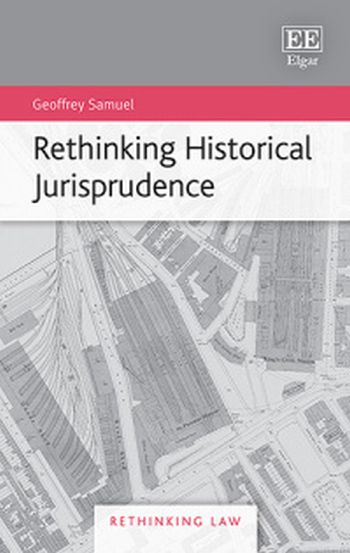
This stimulating book considers the ways in which historical jurisprudence deserves to be rethought, arguing that there is much more to the history of legal thought than the ideas, and ideology, of the nineteenth and early twentieth century jurists, such as Karl von Savigny and Sir Henry Maine.
In doing so, Geoffrey Samuel looks at the history of legal thought, method and reasoning from the position of three questions that will help readers to reflect on the nature of legal knowledge. First, what has legal knowledge been in the past? Secondly, taking a cue from the work of Thomas Kuhn, have there been scientific revolutions in the history of law? Thirdly, do jurists today know more about law as a body of knowledge than jurists of the past? In other words, does the history of law reveal a body of cumulative knowledge? This nuanced book shows how, in re-examining legal knowledge from a diachronic perspective, historical jurisprudence can be rethought as a domain concerned with contemporary legal epistemology.
Ambitious in its scope, Rethinking Historical Jurisprudence will be a key resource for students and scholars in the fields of legal philosophy, legal theory and history and research methods in law.